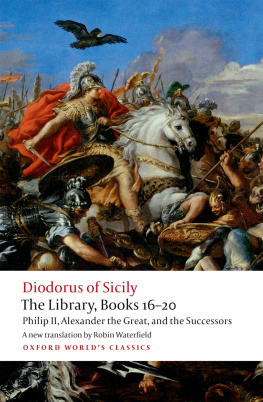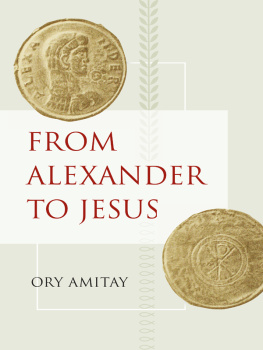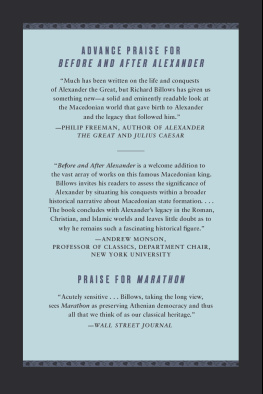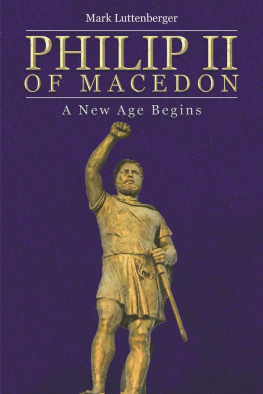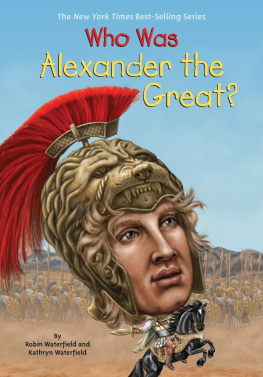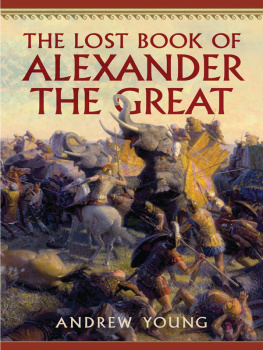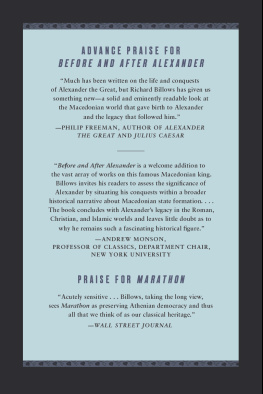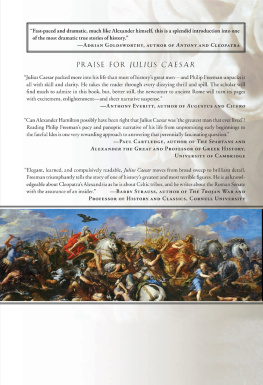Diodorus Siculus (Diodorus of Sicily) lived and worked in the first century bce, spending much of his life in Rome. He entitled his historical work The Library because he intended it to be a one-stop shop for historical information, from mythological times until 60 bce, stopping just short of the Gallic campaigns of Julius Caesar. The Library was divided into forty books, of which fifteen survive: 15, and 1120. All that remains of the rest are fragments and summaries. Books 1120 contain the only continuous narrative from a Greek historian that covers all of the Classical and Early Hellenistic periods, from 480 until 302. The work is divided by years, and for each year that he covered, Diodorus tried to include information from every part of the known world; in fact, however, his focus is particularly on the Greeks.
Robin Waterfield is a writer, living in Greece. His previous translations for Oxford Worlds Classics include Platos Republic and five other editions of Platos dialogues, Aristotles Physics and The Art of Rhetoric, Demosthenes Selected Speeches, Herodotus Histories, three volumes of Plutarchs Lives, two editions of Euripides plays, Xenophons The Expedition of Cyrus, and The First Philosophers: The Presocratics and the Sophists.
oxford worlds classics
For over 100 years Oxford Worlds Classics have brought
readers closer to the worlds great literature. Now with over
700 titlesfrom the 4,000-year-old myths of Mesopotamia to the
twentieth centurys greatest novelsthe series makes available
lesser-known as well as celebrated writing.
The pocket-sized hardbacks of the early years contained
introductions by Virginia Woolf, T. S. Eliot, Graham Greene,
and other literary figures which enriched the experience of reading.
Today the series is recognized for its fine scholarship and
reliability in texts that span world literature, drama and poetry,
religion, philosophy and politics. Each edition includes perceptive
commentary and essential background information to meet the
changing needs of readers.

Great Clarendon Street, Oxford, ox2 6dp , United Kingdom
Oxford University Press is a department of the University of Oxford. It furthers the Universitys objective of excellence in research, scholarship, and education by publishing worldwide. Oxford is a registered trade mark of Oxford University Press in the UK and in certain other countries
Robin Waterfield 2019
The moral rights of the author have been asserted
First published as an Oxford Worlds Classics paperback 2019
Impression: 1
All rights reserved. No part of this publication may be reproduced, stored in a retrieval system, or transmitted, in any form or by any means, without the prior permission in writing of Oxford University Press, or as expressly permitted by law, by licence or under terms agreed with the appropriate reprographics rights organization. Enquiries concerning reproduction outside the scope of the above should be sent to the Rights Department, Oxford University Press, at the address above
You must not circulate this work in any other form and you must impose this same condition on any acquirer
Published in the United States of America by Oxford University Press
198 Madison Avenue, New York, NY 10016, United States of America
British Library Cataloguing in Publication Data
Data available
Library of Congress Control Number: 2018968362
ISBN 9780198759881
ebook ISBN 9780191078064
Printed and bound in Great Britain by Clays Ltd, Elcograf S.p.A.
To the memory of Peter Bruce Waterfield (19242018) and Janice Hope Boyles (19392018)
Contents
The Greek text taken as the basis for this translation is the Teubner edition: Diodorus: Bibliotheca Historica, vols 4 and 5 (both published in 1906), edited by C. Fischer on the basis of original recensions by I. Bekker and L. Dindorf. The relevant volumes of the Loeb Diodorus are also useful: Diodorus Siculus, Library of History, Books 15.2016.65 (ed. and trans. C. Sherman, 1952); Diodorus Siculus, Library of History, Books 16.6617 (ed. and trans. C. Welles, 1963); Diodorus Siculus, Library of History, Books 1819.65 (ed. and trans. R. Geer, 1947); and Diodorus Siculus, Library of History, Books 19.6620 (ed. and trans. R. Geer, 1954). Books 1619, but unfortunately not yet Book 20, have also been published in the Bud series, with facing French translation and excellent introductions and notes: Diodore de Sicile, Bibliothque Historique, Livre XVI (ed. and trans. D. Gaillard-Goukowsky and P. Goukowsky, 2016); Diodore de Sicile, Bibliothque Historique, Livre XVII (ed. and trans. P. Goukowsky, 1976); Diodore de Sicile, Bibliothque Historique, Livre XVIII (ed. and trans. P. Goukowsky, 1978); Diodore de Sicile, Bibliothque Historique, Livre XIX (ed. and trans. F. Bizire, 1975).
All deviations from the Teubner text have been marked in the translation with an obelus, which refers the interested reader to a note in the Textual Notes section at the back of the book (pp. 52933). An asterisk in the text means that there is a note on that passage in the Explanatory Notes (pp. 425528).
I would like to thank Richard Berthold, Dexter Hoyos, and Bill Murray for answering questions of detail, and especially Lisa Hau for improving the Introduction. Diodorus is a critical source for much ancient Greek history, and I am very grateful to Oxford University Press, in the person of Luciana OFlaherty, for allowing a degree of annotation that will help to make this translation more useful to readers both lay and professional. Nevertheless, the notes fall well short of a complete historical commentary. I have restricted them to points that required immediate elucidation, and have listed in the bibliography enough works for an interested reader to gain a sense of the complete history of the period.
A huge amount of ancient history can be recovered only with the help of Diodorus of Sicily, who wrote in the first century bce . He is our main source not just for less mainstream events that other historians ignored, but for central aspects of ancient Greek history: the history of Sicily, the career of Philip II of Macedon, and the struggles of the Successors following the death of Alexander the Great. And he is always to be consulted on every other period as well; he is, for instance, the earliest surviving historian by over a hundred years to cover the career of Alexander the Great. He importantly supplements Thucydides on the fifty years preceding the outbreak of the Peloponnesian War in 431, and often gives different versions of Roman history from the usual historians, such as Livy. Every page of The Library contains information that we would not otherwise know, and the loss of much of it is lamentable.
Almost all we know about Diodorus life is what can be gleaned from The Library itself. He was born in Agyrium in Sicily (1.4.4), a prosperous town at the time of his birth, and one of the older Greek settlements in the interior of Sicily, rather than on the coastline. By coincidence, of only two inscriptions that are known to have survived from this town, one is a tomb marker for a Diodorus, the son of Apollonius.

